googleglass
Latest
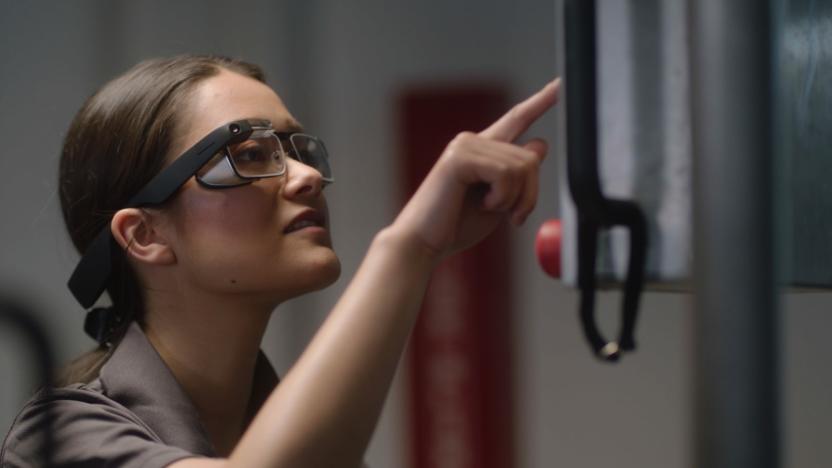
Google makes it easier to buy its Glass headset for workers
Google has announced that developers and businesses can now buy Glass Enterprise Edition 2 directly from its resellers. The third incarnation of Google Glass initially went on sale last May for enterprise customers. While Google no longer considers Glass to be a consumer-focused product, it should be much easier for anyone to get their hands on the latest version if they really want one.
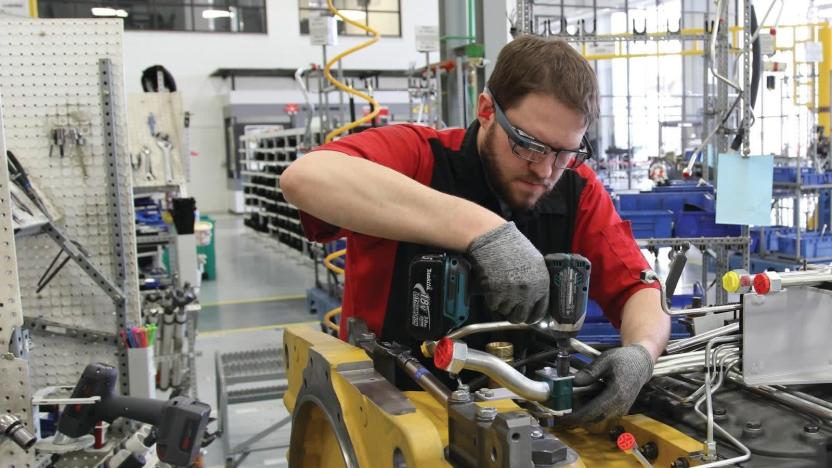
Second-generation Glass Enterprise Edition will use USB-C
A second generation of Alphabet's Glass Enterprise Edition with a USB-C port and 5G capability appears to be in the works, according to leaked photos via Brazilian technology news website Tecnoblog. The photos are from Anatel, the Brazillian FCC, which has approved the latest glasses for use in Brazil. The new generation of Glass Enterprise should have a few notable changes, assuming these photos are indeed of a forthcoming model. First, a USB-C port for charging will replace the magnetic cable in the earlier generation, as we can see in the pictures below unearthed by Tecnoblog.

Researchers use Google Glass to help kids with autism
We haven't heard from Google Glass since its newer, sleeker version came out in July 2017 with a focus on assisting in the workplace. But scientists have found another application for the search giant's augmented reality glasses: Helping autistic children navigate social situations.
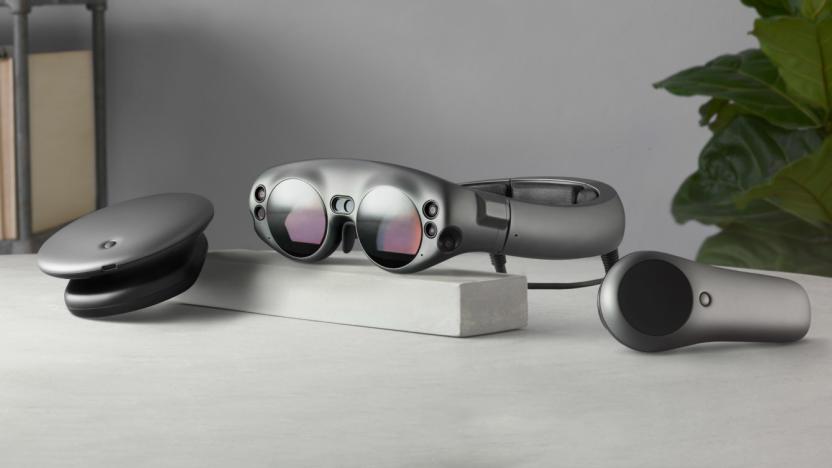
Magic Leap’s lackluster AR demo proves hardware is still hard
Magic Leap announced last week that its mixed reality glasses -- which have been shrouded in mystery and hype for almost four years -- will be available later this summer. What should've been exciting news unfortunately fell flat. In a developer chat on Twitch that same day, the company showed off a less-than-impressive prerecorded demo of a small rock golem throwing some rubble around. Compared to earlier videos of a crashing whale in the middle of a gym and a floating solar system, this just came off as disappointing. Was this all there was?
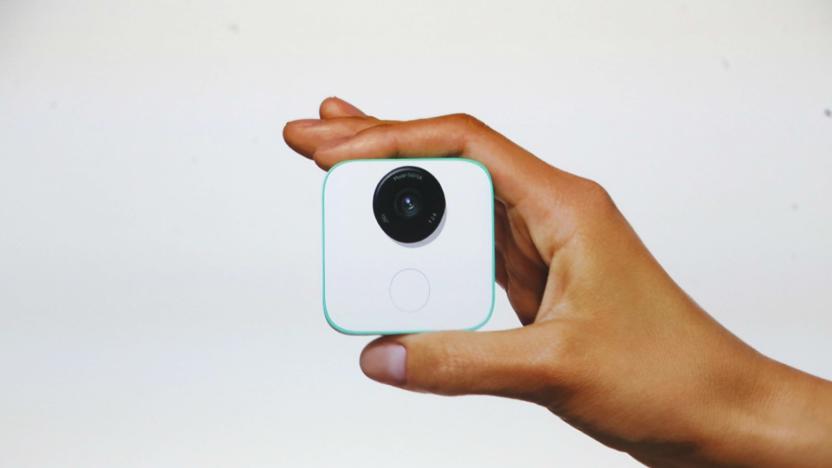
Google Clips camera lays the groundwork for our AI-powered future
Allow me to make a bold prediction: Google's Clips camera is going to flop. Clips is a $250 camera powered by artificial intelligence and designed to snap images of important moments as they happen, no human input required. At best, it'll probably sell OK at launch -- there will be a handful of cute videos showing how the camera performs while attached to a dog or the top of a baby's toy mobile, and the internet will briefly swoon. Maybe a few months later, it'll catch a crime in action, and we'll be reminded that these odd, all-observant cubes exist. But, regardless of the viral content that comes out of Clips, it's not going to be enough to convince mainstream consumers to run out and drop more than $200 on a clip-on camera. Smartphones have cameras (really good ones, even), and a lot of people have smartphones. Clips might address a real problem -- freeing up users to experience life without worrying about filming it -- but no one needs this technology right now. Besides, it's kind of a creepy concept overall. Allow me to make another, less bold claim: Google knows all of this. And while it would be great for the company's bottom line (and its data-collection department) if Clips takes off, it doesn't need the hardware to sell well right now. Google most likely has larger plans for Clips' software.
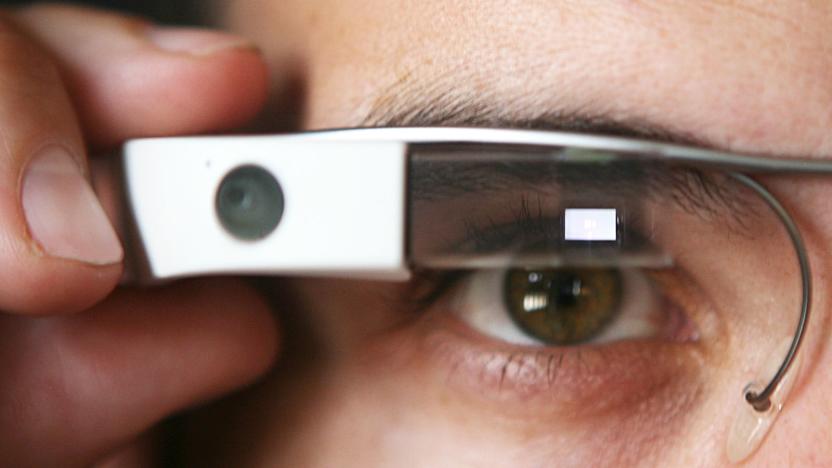
The new Google Glass is on sale today (but don't get it)
Did you regret skipping Google Glass the first time around? You now have a second chance... if you have a specific need for it, that is. Glass for Work partner Streye is now selling the follow-up Glass Enterprise Edition starting at €1,550 (about $1,829). This is clearly intended for business (you get access to Streye's enterprise streaming services with your purchase), so you really, really won't want to buy it if you're just trying to impress your friends. However, this is still the most accessible Glass has been in years -- if you do need a wearable eyepiece, it's theoretically within easy reach.

Focusing on business might resurrect Google Glass
It's hard to believe that it's been more than five years since Google first announced Project Glass, its wearable-glasses-mounted computer. What I remember most about Google Glass was hype: The company's demonstration at I/O 2012 was perhaps the most dramatic thing I've ever seen at a tech conference. It featured skydiving and BMX bikers wearing Glass, broadcasting their first-person experience straight to the people in the room. It was wild and impressive, but Google misjudged how that hype would translate into actual consumer usage. The look of someone wearing a camera on her face was too alienating, and Google never presented a complete vision of what Glass could do. That was part of the plan: The Explorer Edition that Google sold to early adopters was mostly meant for developers to use and figure out what apps made sense for it. But Glass never progressed beyond that experimental phase, and it was taken off the market in Jan. 2015, before a consumer edition even shipped.

Google Glass is officially back with a clearer vision
If you thought that Google Glass was killed by a lack of practicality and privacy concerns, think again. Alphabet X, Google's "moonshot" branch, has unveiled a reboot of the original eyeglass-like wearable called Glass Enterprise Edition. As the name suggests, it's not aimed at the public at all. Despite its many foibles, Glass turned out to be very useful for workers, so the new version targets businesses to help workers do their jobs better.

Google Glass adds Bluetooth support for whoever still uses it
Google Glass seemed headed for awkward retirement after the device's most recent update in September 2014 appeared to be its last. But out of nowhere, almost three years later, the augmented reality pioneer is getting its code refreshed with the usual performance boosts and bug fixes -- as well as added Bluetooth support.

Andy Rubin's Essential is toying with the idea of smart glasses
Now that Andy Rubin's technology startup Essential has emerged from stealth, there's a healthy amount of interest around what the company plans to do to stand out. We've already had our first look at the Essential Phone and smart Home assistant, but a recent patent filing also hints that the Android co-founder and his team could launch smart glasses that look a lot like Snapchat's Spectacles.

ICYMI: Augment yourself with video glasses and exosuits
Today on In Case You Missed It: Between Snap Inc.'s more-buzz-than-Google-Glass sunglasses and exoskeleton suits for the workplace, we are officially future-living. Spectacles cost $130 and are dispensing in randomly placed vending machines. Meanwhile, SuitX, a robotics company from California, created three exosuit options designed to help physical laborers do their jobs and stay injury-free. Stanford researchers have a system that uses chemicals rather than electrons to send text messages, and Texas A&M's gymnastics team created an amazing mannequin challenge that must be seen to be believed. As always, please share any interesting tech or science videos you find by using the #ICYMI hashtag on Twitter for @mskerryd.

Google grabs ex-Motorola president to unify its hardware groups
Rick Osterloh, former president of Motorola, is now Senior Vice President at Google in charge of a new hardware division that includes the company's Nexus devices, living room gadgets and Glass, Re/code reports. This means Nest CEO Tony Fadell is no longer leading Google's Glass initiatives, a role he took on in January 2015, though he'll stay on as a team adviser. Osterloh is no stranger to Google -- he led product development during Motorola's tenure under Google and helped develop the Moto X, Moto 360 and early Droid efforts.

Google Glass for work is sleeker, tougher and foldable
You won't have to wait for Google to reveal the next generation of Glass (aka Project Aura) -- regulators just stepped in on its behalf. A newly published FCC filing shows the previously rumored Enterprise Edition headset, and it's clearly a big improvement over the Explorer model from years earlier. The work-focused eyepiece touts a much slicker (and likely more durable) design with both a larger display prism and a hinge that lets you fold it up for travel. The test photos also reveal a spot for a magnetic battery attachment and what looks to be a speedier Atom processor.
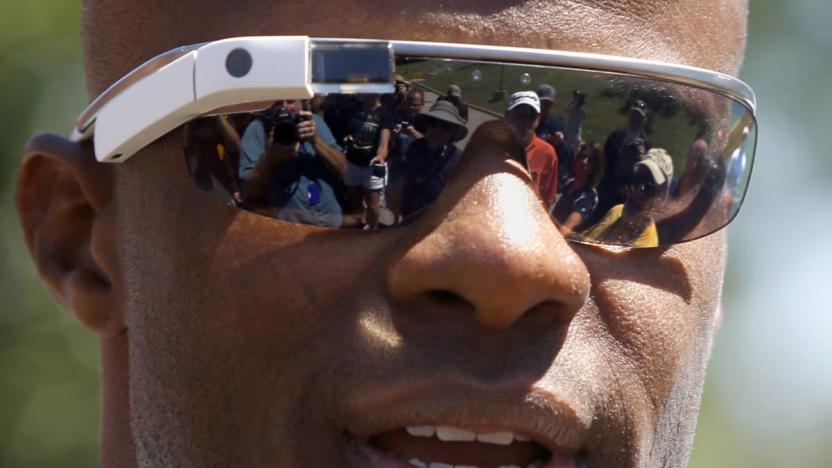
One Google Glass follow-up reportedly ditches the screen
Google Glass (aka Project Aura) might not include so much actual glass the next time around. Sources for The Information understand that there are three next-generation headsets in development, and that one of them doesn't have a screen at all -- it's an audio-focused model meant for the "sport" crowd. That sounds like an amped-up Bluetooth headset to us, but we'll reserve judgment until there's something to see... or rather, hear. Don't worry if you still want that signature eyepiece, though -- there's talk of at least an enterprise-focused model with a display, Things are reportedly still up in the air (Google may cut its three models to two), but this could give you an idea of what to expect when Project Aura arrives sometime next year. [Image credit: AP Photo]

ICYMI: Perfect temp mug, MIT's wiggly robot and more
#fivemin-widget-blogsmith-image-621697{display:none;} .cke_show_borders #fivemin-widget-blogsmith-image-621697, #postcontentcontainer #fivemin-widget-blogsmith-image-621697{width:570px;display:block;} try{document.getElementById("fivemin-widget-blogsmith-image-621697").style.display="none";}catch(e){}Today on In Case You Missed It: MIT's Media Lab created the LineFORM out of a wiggly bit of robotics that can morph into different shapes, like a telephone or a data connecting cable. Meanwhile a $130 mug will let you set the perfect temperature for your java. And an Indiegogo campaign for a head-mounted camera that makes users look like waylaid super heros is well short of its funding goal, which is probably good because we would hate to see them out in the world.

The Ora-X smart headphones include a flippable AR display
Google Glass was, by all accounts, a spectacular flop in the eyes of potential consumers. Now, another company hopes to succeed where Google has failed by incorporating an AR display into a device people are far more familiar with: over-ear headphones.

Google wants Glass-like headsets with holographic displays
Google Glass (aka Project Aura), as cool as it is, isn't very immersive: you're still looking at flat pictures superimposed on a 3D world. You may see some added depth in the future, though. Google has filed for a patent on a "head wearable display" that would show holograms. The hope is that this would create an augmented reality experience that's more involving than what you get today, including a wider field of view and a more efficient, easier-to-wear headset.

Google Glass is now 'Project Aura,' welcomes ex-Amazon engineers
Looks like Google Glass really isn't dead like the company promised. Mountain View has been hiring engineers and software developers out of Amazon's Lab126 for the initiative now dubbed "Project Aura," according to Business Insider. The company has reportedly signed up at least three people from the e-retailers' secret hardware facility, which recently went through an overhaul -- Amazon laid off a bunch of folks and shelved a number of ambitious projects -- due to the Fire phone's failure to sell. Business Insider says Project Aura will work on other wearables, as well, and will remain under Google's supervision instead of being established as a separate entity under the Alphabet umbrella.

Google is launching a new version of Glass, but only for workers
Good news, wearable fans: there's a new version of Google Glass on the way. Only... it's not really meant for you. Both Recode and the Wall Street Journal hear that Google is handing out a new, work-oriented version of its smart eyepiece to its enterprise partners' development teams. As for what it entails? Like 9to5Google hinted earlier, its a mix of performance and accommodating the demands of the working world. There's a hinge to attach it to different glasses, and the wider, thinner prism (aka the display) can move both vertically and horizontally. It also touts a faster Intel Atom processor, better wireless and longer-lasting battery packs that attach to the headset through magnets.

Tony Fadell volunteered to rescue Google Glass
Google's decision to 'graduate' Glass from Google X in January was coupled with the announcement that the team would start reporting to Nest co-founder Tony Fadell. Glass was never a roaring success -- privacy concerns and the "Glasshole" label scuppered public adoption -- so some wondered whether the iPod designer had been saddled with the project. Apparently not so. In a BBC interview, Fadell has clarified that he actively asked for the role. "It wasn't handed to me and said, 'Tony, clean it up,'" he explained. "I offered and said, 'this is important.' I remember what it was like when we did the iPod and the iPhone. I think this can be that important, but it's going to take time to get it right."












